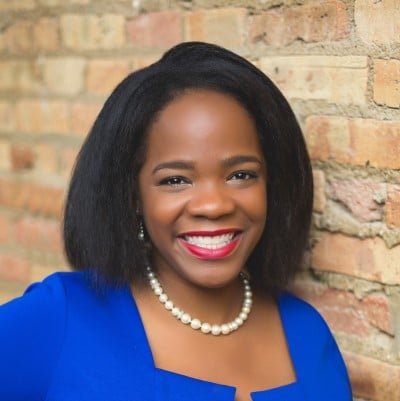I cannot give “fluff” talks because we are focused on inclusion, and inclusion takes hard work. It takes courageous people standing up to say this may be the way we’ve always done it, but here is the way we are going to change it. Because it’s not just about what we do in the workplace; it’s about how we lead it — inclusively.
If you’re reading this, you have the power to be an inclusive leader, in whatever space you lead. You have the ability to transform cultures, to drive inclusion, and to ensure that everyone in the spaces that you are in has the ability to not just belong, but to succeed. That’s what inclusive leaders do.
Now to understand how to get there, I want to tell you the most important secret I know about inclusive leadership. Think of the first five words that come to mind when you think of leader. If you’re like most people, you’ll come up with words like visionary, inspirational, authority-commanding, expert, confident, success, manage, power and motivate.
Those are all good words, but I want you to think of one more. Who are these leaders projecting these characteristics to? Who is judging whether they are even good leaders? Who is driving the innovation? Who is delivering the work? Who is telling the story of their success? Who will be standing with the legacy they leave behind? I’ll tell you who — people.
PEOPLE POWER
People are the power behind any organization. As a leader, you’ll start with a title. That’s why they’ll follow you. But they’re not following you because they want to. They’re following you because it gives them status or money, or because they have to. A title alone doesn’t make you a leader.
If you want to inclusively lead this world of collaborators, innovators and change makers, your people are going to follow you not because they have to, but because they want to. You’re going to have to make them feel liked, cared for, valued, trusted. You’re going to have to help them produce in a world that emphasizes efficiency and shortcuts over long-term thinking. You’re going to have to develop them, and most of all, you’re going to have to see them for who they are and what they can achieve.
Because the secret is people. Teams of people. Departments of people. Organizations full of people. And those people are all very, very different.
So what do inclusive leaders do? First, they acknowledge differences, such as the challenges of being a first-generation professional, or of working across multiple offices and in multiple cultures, or of being a veteran returning to the workforce, or of being a parent with young children or elder relatives to care for. An inclusive leader recognizes the discomfort that a man might have bringing his same-sex partner to the workplace, or the pain and isolation a colleague might feel while undergoing gender transition.
Inclusive leaders take it one step further. They don’t just understand and value differences — they actually make those differences work for the people who work there.
We work in a knowledge-driven economy where the advantages come from our ability to innovate, to create new ideas, to find new revenue streams and to serve our customers better. Inclusive leaders understand that you need to use all the unique knowledge, skills and potential from everyone.
What client relationships do we build? Where do we find them? What technologies do we use? How do we form teams? How do we manage teams? How do we deliver feedback? When do we deliver feedback? What type of external vendors do we use? How do we involve customers in our work? Innovate compensation. Innovate teams. Innovate work.
We are all different. We have different lives, come from different spaces and communicate differently. We compete differently, and we work differently. Inclusive leaders make those differences count. And that’s the secret — people. Inclusive leadership means making everyone’s difference and diversity matter.
